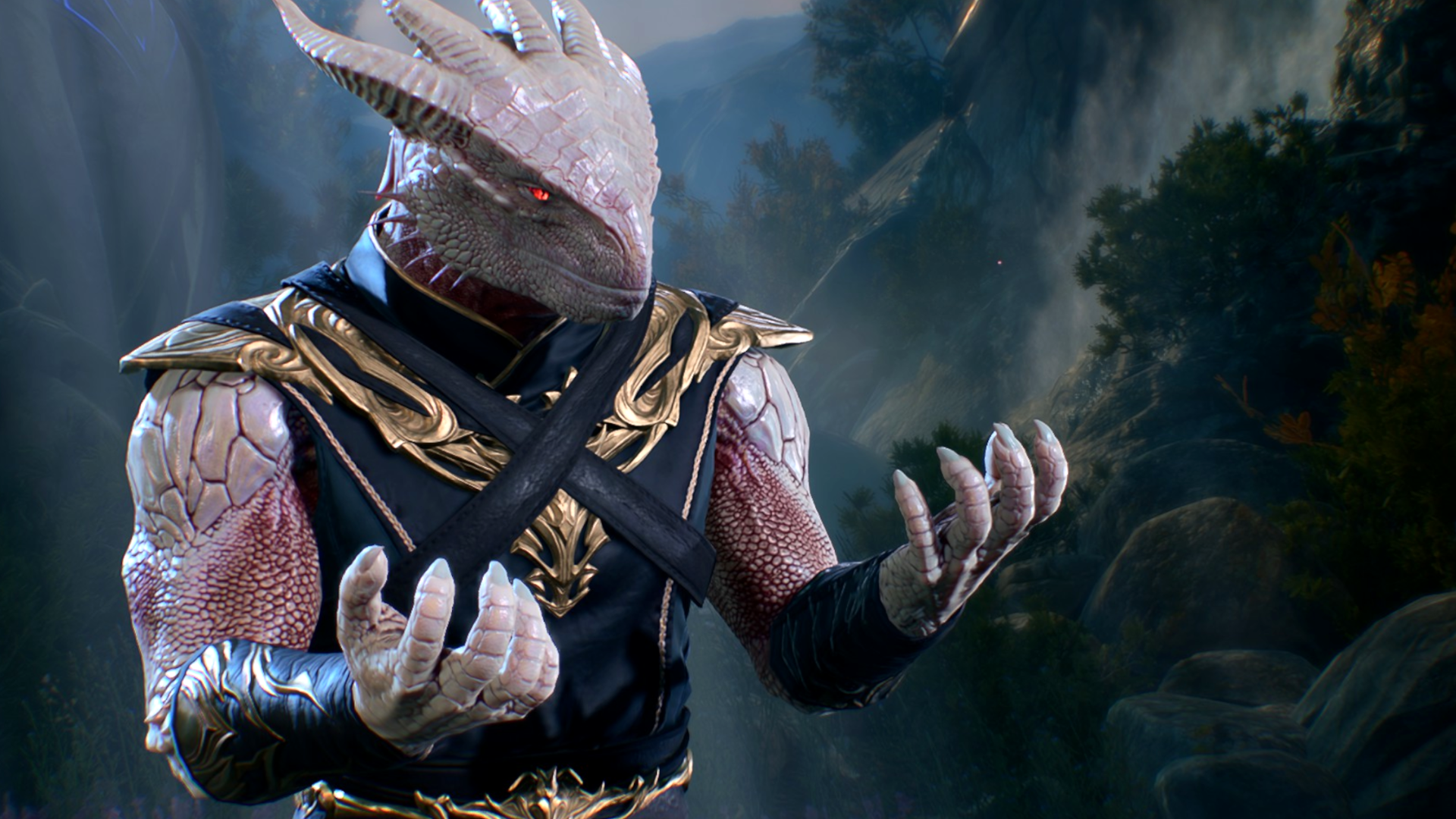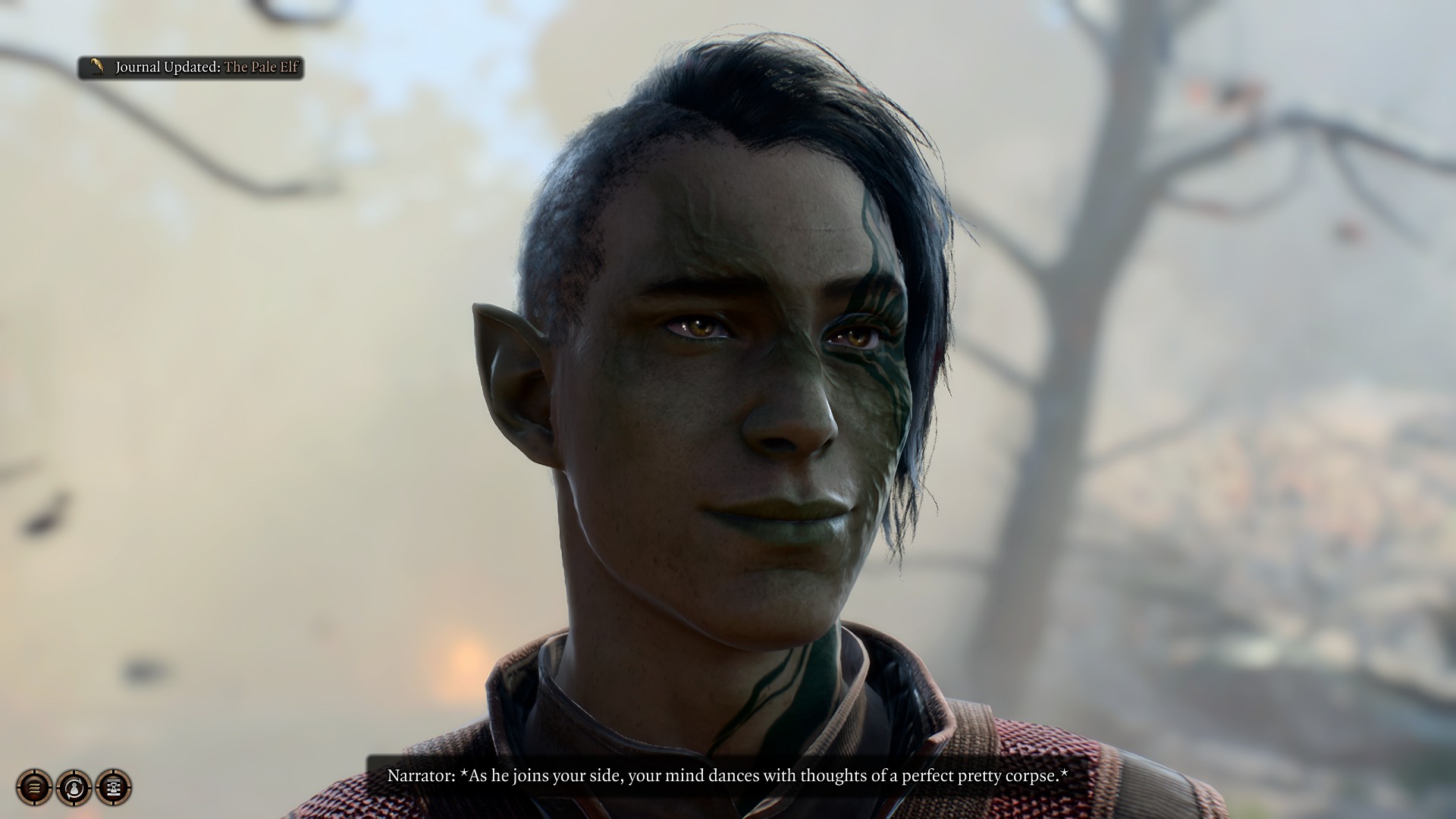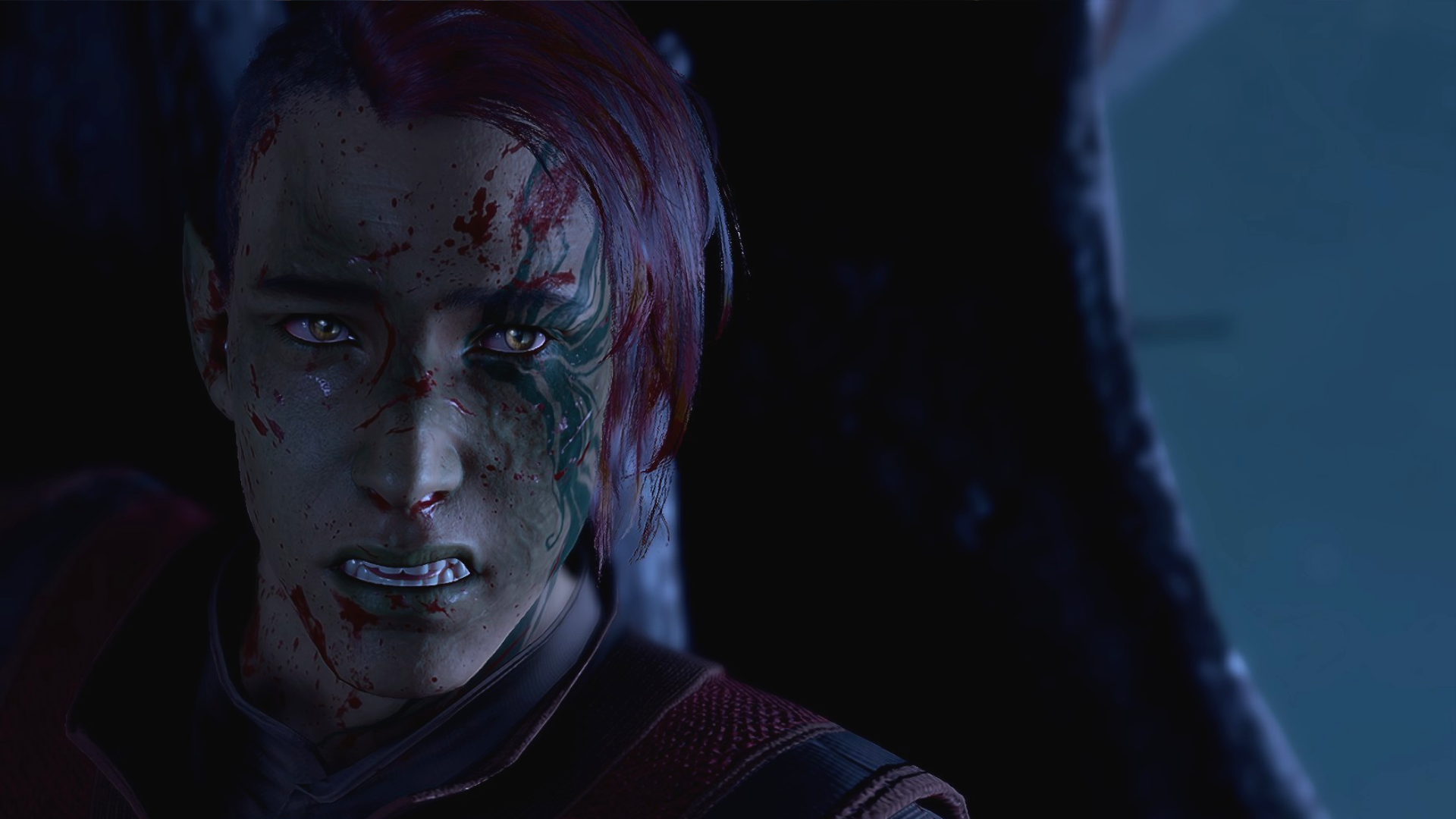Amelia Tyler, Baldur's Gate 3's narrator, talks putting a voice to the Dark Urge's 'feral, visceral, animalistic, want to tear the world apart with [its] teeth'
I sat down with the Sword Coast's illustrious narrator earlier this week, and talked ripping, tearing, and animal psychology.

Baldur's Gate 3 has voiced narration—a lot of it, as I've personally confirmed by playing the dang thing while having the sound turned on. I recently had the pleasure of speaking to the voice behind the game's reams and reams of narration, Amelia Tyler, earlier this week.
While Tyler's dulcet tones do stay largely consistent, there are noticeable differences if you play the game's different origin characters. She's on record as having done over a dozen different narration styles for the game, each representing a different character's inner voice.
Not for every single line of narration, as Tyler assures me, but for key moments? Absolutely. "When we started off recording the narration for the early access version, it was very much a one-note narration style … but with much more of an attitude. The brief I was given was 'Scar from the Lion King'."
Granted, that's something we knew already from her past interviews. However, she explains why they shifted away from smarmy judgement to inner monologue, namely, that it would get exhausting to be judged all the time. Instead, "we wanted [the narration] to echo the choices the player was making, so it was very much your narrator, whether you're choosing to play a Paladin, or Dark Urge, or anything in between."
Tyler says that philosophy happened almost by accident, during those early access days of experimentation. "I don't think it was a conscious decision at the beginning, to give it those different voices, it just sort of evolved naturally. We'd get to a more Dark Urgey line or a Shadowheart line or an Astarion line or a Wyll line, and [I'd say] them in a way that allowed me to convey emotion … you never wanna tell a player how to feel, but I can echo the emotion of a moment."
That resonates with me, as someone who has DM'd games of Dungeons & Dragons (which Baldur's Gate 3 is built upon). While I'm certainly not a voice actor for one of the best RPGs in the past decade, I've definitely found myself saddled with the task of providing a narrated inner monologue for my players. Tyler agrees, drawing another line between the role of Dungeon Master and narrator.
"That's how we wanted it to happen," Tyler says. "We imagined it almost like 'I'm behind you with my chin on your shoulder, just whispering in your ear and tilting in your head, like: look at that!" She does, however, go on to say that there are some key differences between DMing and narrating—namely, she doesn't have to describe anything visual. "The narration [is used] to describe anything that you can't see. It's your feelings, or a smell, or a memory, or [tadpole manipulation]."
Keep up to date with the most important stories and the best deals, as picked by the PC Gamer team.

Leading up to this interview, Tyler suggested I give the Dark Urge—a character who suffers from violent impulses—a spin. Armed with that knowledge, I started picking up on how much more feral her line reads became, whenever I was being tempted down the path of blood. I asked her how she found that energy.
"I mimic [the character's] intonation or their pacing, the rise and fall of their voice. Karlach is a little more boisterous, Shadowheart's is just lifted in pitch slightly, and a bit more delicate. But for Dark Urge, throughout the game, aside from the [character creation screen] and occasional moments, Dark Urge doesn't talk. So I didn't have that to base it on. So we took it back to: 'What does this character represent? How do they think? What drives them?'
"I am very much the voice of the [Dark Urge's] bloodlust, of that feral, visceral, animalistic, want to tear the world apart with your teeth," she says. As for where that darkness came from, Tyler gives thanks to her background in animal psychology of all things. "I did a lot of animal studies," she starts, before quickly reassuring me: "I wasn't in a lab, attaching electrodes to things—animal psychology, study. Behaviour in the wild versus behaviour in captivity."

"There was a lot of that which got mimicked in Dark Urge. That kind of caged animal, pacing, needing to be free, needing to kill and not even really knowing why. It's just: that's how you're wired … It's tapping into something more primal in that character, it's not necessarily someone else's voice. It's the part of you you might not like."
She then goes on to reflect on her other shifts in performance with the game's other origin characters, and how her route was similar, if a little less wild: "The narration often echoes those hidden feelings that they have, those little moments of self doubt—or noticing something and feeling uneasy, and not knowing why. It's very much taking it back to that basic animal psychology of whatever grounds that character."
Tyler also has something called aphantasia, which affects around 1-5% of the population according to the Aphantasia network website. Simply put, people with aphantasia don't have a 'mind's eye', which means they're unable to summon an image to their minds. For some, this can even extend to imagining mental 'images' linked to other senses, like sound and taste—like many conditions of its type, it exists on a spectrum.
For Tyler, as a voice actor, this has meant she's needed to rely on the emotional side of things. Which, if you're needing to convey the emotion of a specific character, speaking to that inner voice, is very helpful: "I translate instructions into feelings. So that has been, apparently, very useful to what I do. I'm not trying to tell someone how to see me, I'm just feeling it—and trusting that translates."
If you've not started a second playthrough yet, I'd encourage you to pick an origin character—and pay close attention to those lines of bespoke narration. The Dark Urge is the most obvious, but Tyler's added her own personal flourish to every one of them. While she might not lend voices to a huge cast of NPCs like your average DM, she's everyone's inner monologue, and that leads to some pretty special performances.

Harvey's history with games started when he first begged his parents for a World of Warcraft subscription aged 12, though he's since been cursed with Final Fantasy 14-brain and a huge crush on G'raha Tia. He made his start as a freelancer, writing for websites like Techradar, The Escapist, Dicebreaker, The Gamer, Into the Spine—and of course, PC Gamer. He'll sink his teeth into anything that looks interesting, though he has a soft spot for RPGs, soulslikes, roguelikes, deckbuilders, MMOs, and weird indie titles. He also plays a shelf load of TTRPGs in his offline time. Don't ask him what his favourite system is, he has too many.

